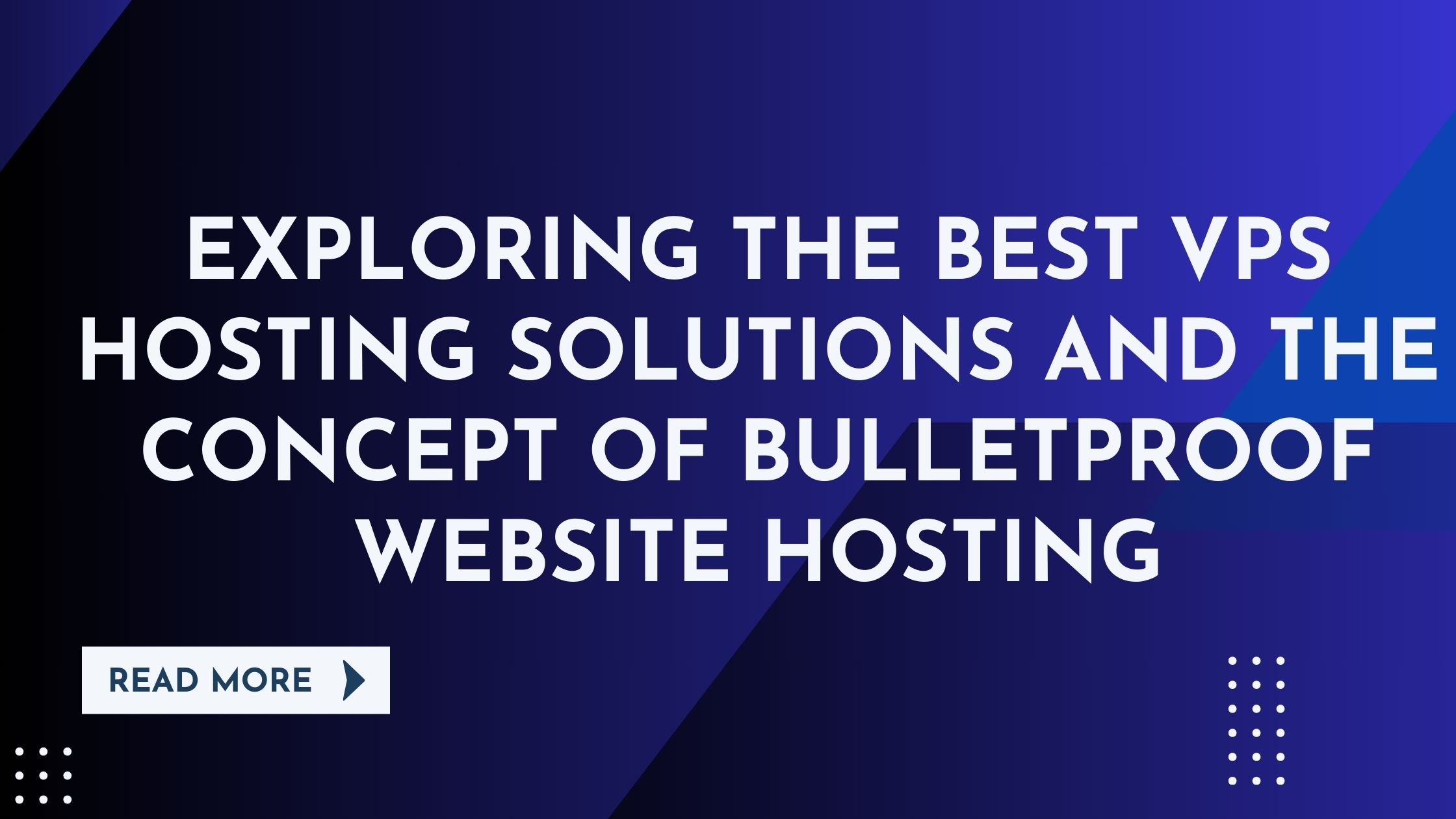Exploring the Best VPS Hosting Solutions and the Concept of Bulletproof Website Hosting

- October 25, 2023
- 0 Comments
In the fast-paced world of online businesses and websites, choosing the right hosting solution is crucial. Two terms that frequently pop up in this context are “best VPS hosting” and “VPS bulletproof website hosting.” In this blog post, we’ll dive into these concepts to help you understand what they mean and make an informed decision for your website hosting needs.
Understanding VPS Hosting
VPS stands for Virtual Private Server, and it’s a type of web hosting that bridges the gap between shared hosting and dedicated servers. With shared hosting, multiple websites share the same server resources, which can lead to slower performance and limited control. Dedicated servers offer complete control but can be expensive and complex to manage.
VPS hosting offers the best of both worlds. It involves a single physical server divided into multiple virtual servers using virtualization technology. Each VPS has its dedicated resources, including CPU, RAM, and storage, which ensures better performance and control compared to shared hosting. It’s a great option for websites that have outgrown shared hosting but aren’t ready for the commitment and cost of a dedicated server.
The Search for the Best VPS Hosting
When it comes to finding the best VPS hosting, several factors come into play. Here are some key aspects to consider:
- Performance: Look for VPS hosting providers that offer high-performance hardware, including fast CPUs, ample RAM, and solid-state drives (SSDs) for storage. This ensures your website loads quickly and operates smoothly.
- Scalability: Your hosting should be able to grow with your website. Check if the provider offers scalable resources, allowing you to upgrade your VPS as your site’s traffic and resource needs increase.
- Reliability: Downtime can be detrimental to your website’s reputation and business. Choose a VPS hosting provider with a strong track record of uptime and robust backup solutions.
- Support: Access to responsive and knowledgeable customer support is essential. You may need assistance with server setup, troubleshooting, or other technical issues.
- Security: VPS hosting should come with security features like firewalls, DDoS protection, and regular software updates to protect your website from cyber threats.
- Pricing: Consider your budget and look for VPS hosting plans that offer a balance between price and performance.
Bulletproof Website Hosting: What Does It Mean?
The term “bulletproof website hosting” refers to a hosting solution that is highly resistant to cyberattacks and downtime. It’s a concept often associated with websites that handle sensitive or controversial content, as well as those operating in high-risk environments. Bulletproof hosting services are designed to withstand various security threats and legal challenges, ensuring the continuity of a website’s operations.
Bulletproof hosting typically includes:
- Anonymity: Bulletproof hosts often operate in jurisdictions with lax regulations, enabling website owners to remain anonymous.
- Strong Security: These hosts invest heavily in security measures, protecting websites from DDoS attacks, hacking attempts, and other threats.
- Data Privacy: Bulletproof hosts prioritize data privacy and often do not share user information with third parties or authorities.
- Resilience: They have robust backup and recovery systems to minimize downtime in case of an attack.
- Content Freedom: Websites hosted on bulletproof servers often have fewer content restrictions.
While bulletproof hosting can be appealing for certain use cases, it’s essential to note that it may have legal and ethical implications. It’s crucial to consider the nature of your website and the specific requirements of your project when exploring this option.
In conclusion, when seeking the best VPS hosting, focus on performance, reliability, scalability, support, security, and pricing. For those with more specialized needs, bulletproof hosting may offer an added layer of protection, though it comes with unique considerations. Ultimately, understanding these hosting concepts is the first step in making an informed choice that aligns with your website’s goals and requirements.




